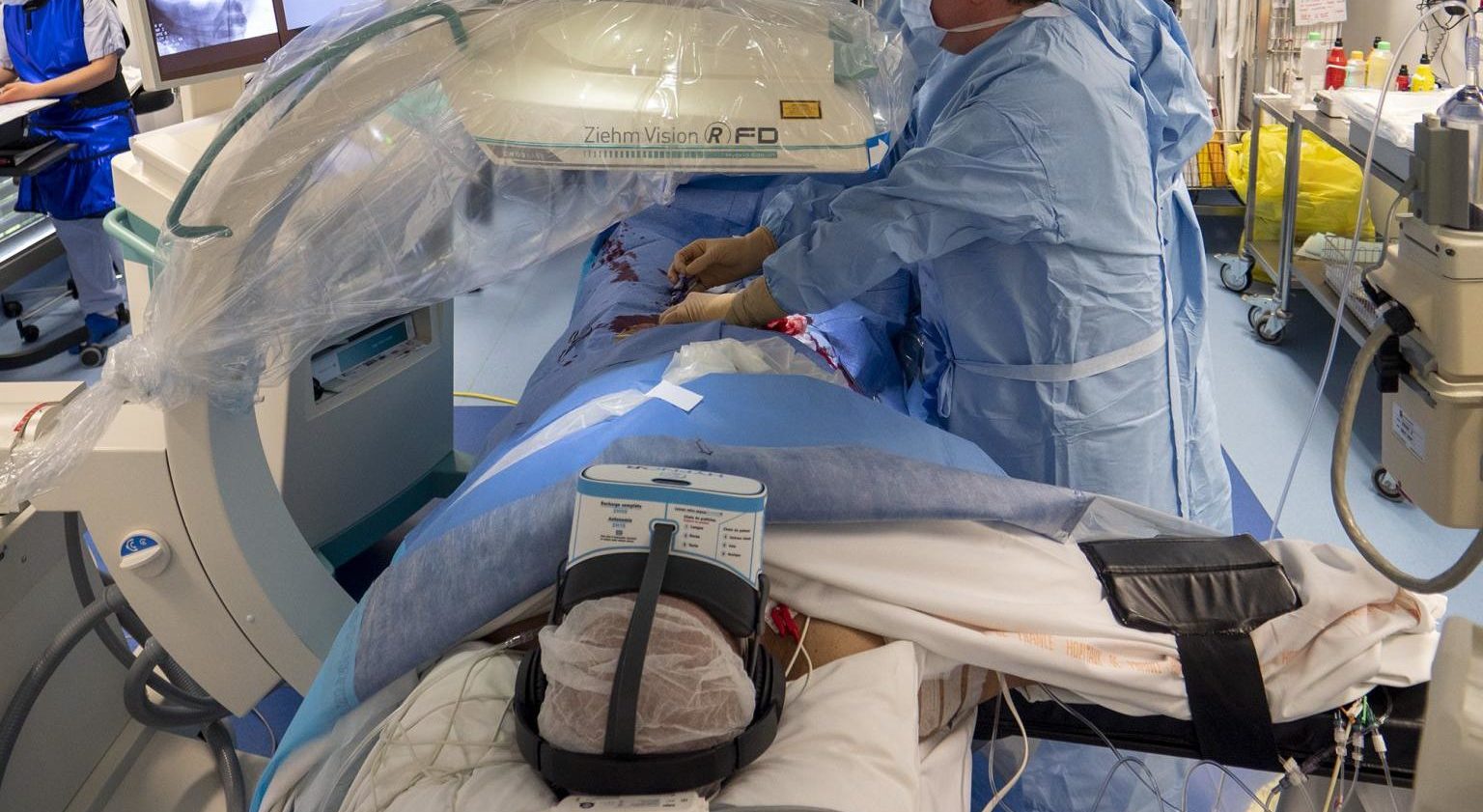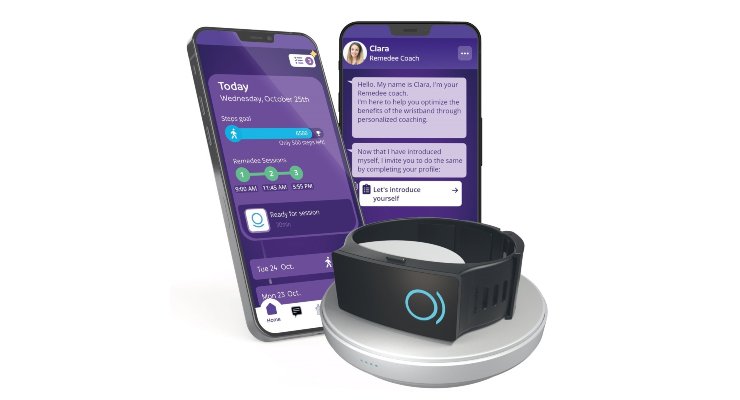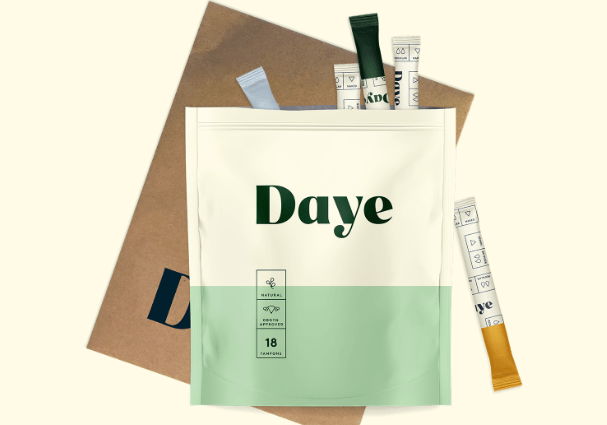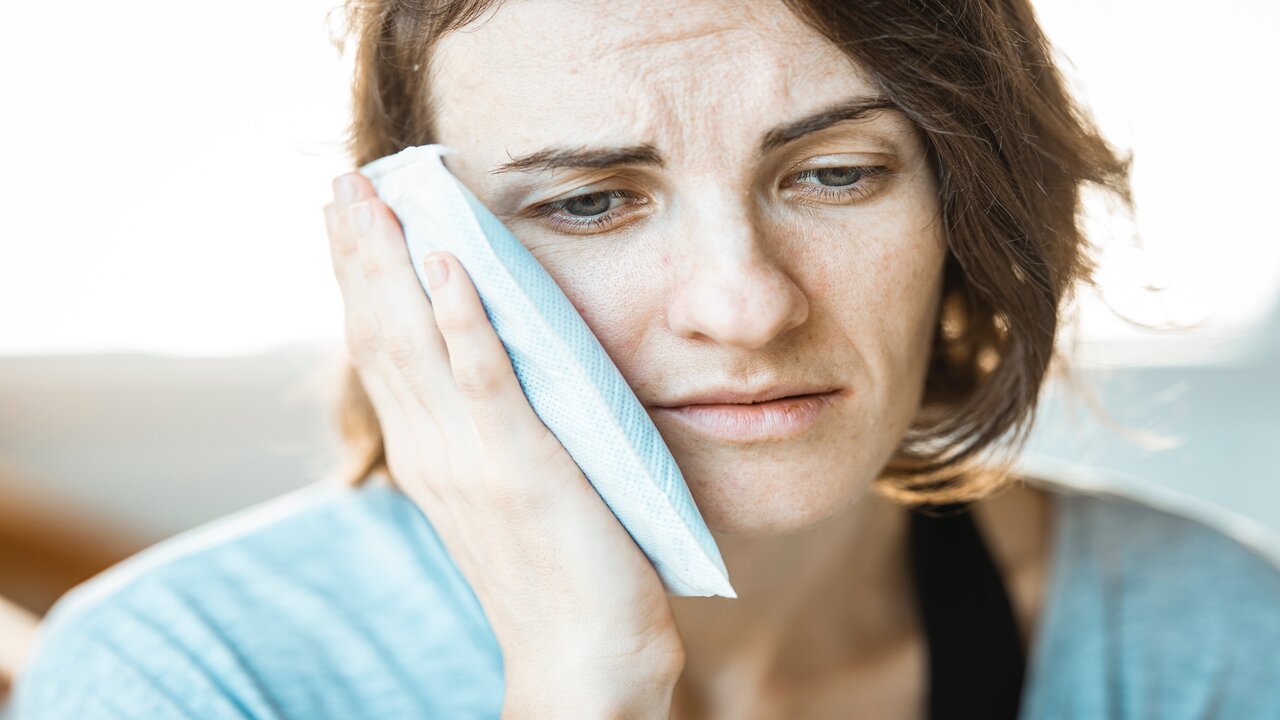Did you know that chronic pain affects more than 1.5 billion people worldwide?
Chronic and regular episodic pain can have profound and wide-ranging consequences, affecting everything from employment and education opportunities to relationships and overall physical and mental well-being.
It is a burden that may even lead to a diminished quality of life, substance misuse, or, tragically, thoughts of suicide.
Amidst these difficulties, a glimmer of hope emerges from the European startup scene, where tech-driven innovations are revolutionising the world of pain treatment and management for diverse symptoms and conditions.
These cutting-edge companies are paving the way for a brighter future. Let's take a closer look at some of the most innovative and promising ones to keep an eye on:
Noema Pharma (Switzerland)
Noema Pharma is committed to developing treatments for debilitating disorders of the central nervous system (CNS).
The company is currently investigating multiple compounds in clinical trials, including a Phase 2b clinical trial for pain associated with trigeminal neuralgia (TN) through the use of Basimglurant (NOE-101).
Basimglurant is a potent inhibitor of metabotropic glutamate receptor 5 (mGluR5), which controls a wide range of processes in both central and peripheral nervous systems. Inhibition of the mGluR5 receptor has shown therapeutic potential for pain associated with such conditions.
The company has raised $179 million, including $112 million in Series B financing in March this year.
Kipuwex(Finland)

Pain assessment is challenging for patients who are unable to communicate, such as children, people with neurological disorders, and critically ill patients. small children, people with mental disorders, and critically ill patients.
Kipuwex is a small wireless IoT device that continuously measures different physiological parameters from the patient digitally, converting them with an algorithm into pain data, providing efficiently reliable measurements for healthcare professionals and home users.
The company has also developed PainCARER, a mobile app in Finnish for pain self-assessment to help people in pain record, track, and assess their pain episodes. The data can be shared with healthcare professionals.
The app includes a drug-free pain treatment methods library and local treatment providers.
Sword Health (Portugal/US)
Portuguese-born startup Sword Health is on a mission to free two billion people from physical pain through more personalised musculoskeletal (MSK-based) offerings — for back, joint, and muscle pain — from prevention to post-surgical care.

The company's most recent app, released in April, encompasses a range of services:
- Predict is an AI engine that uses advanced machine learning to identify members who are up to 40x more likely to have surgery, more than eight months before a decision to operate, to help them avoid unnecessary and costly hip, knee, and back surgeries.
- Digital Physical Therapy pairs an expert Doctor of Physical Therapy with Sword's AI digital therapist, providing a customised treatment program tailored to every member and every condition.
- Bloom is an intravaginal pod to help millions of women dealing with pelvic health conditions.
- Move combines Certified Personal Trainers with wearable tech.
- On-Call gives members 24/7 on-demand access to clinical pain specialists.
Research published last month in Nature Digital Medicine, found that Sword Health's digital physical therapy program is equally effective to in-person treatment, improving the compliance and engagement rates that have been long-standing challenges of traditional physical therapy.
Founded in 2015, the company has raised $323.5 million across nine funding rounds.
HypnoVR (Germany)

HypnoVR is a medical device combining the benefits of medical hypnosis with virtual reality.
Designed by two anesthesiologists and hypnotists with more than 15 years of experience, HypnoVR has demonstrated its effectiveness in treating pain and anxiety through 18 clinical studies (postoperative length of stay divided by 3.57 and 45% reduction in morphine consumption).
It is available to healthcare professionals and is suitable in many healthcare settings, including supplementary anaesthetics, dentistry, and medical imaging.
HypnoVR has raised €6 million in funding.
Kaia Health (Germany/US)
Founded in 2016, Kaia Health is the world's largest digital therapeutics company (with over 650,000 users), delivering evidence-based treatments for musculoskeletal pain and COPD.
Musculoskeletal conditions affect 1 in 2 adults in the US, yet only 10% of these people will see a physical therapist. Even those seeking in-person physical therapy often struggle when they get home without real-time support and guidance.
The company pioneered the application of computer vision and AI in physical therapy with the Motion Coach app, enabling it to give specific feedback that improves exercise form and therapy effectiveness.
Eleven clinical trials have shown Kaia's solution to be as good as traditional care, with up to 80% reduction in cost.
Last month the company launched Angela, a HIPAA-compliant, AI-powered voice-based digital care assistant, companion, and guide.
The company has raised $123 million in funding.
Women's experiences of pain are underresearched, overlooked, and undertreated

Historically, gender differences in pain are poorly considered. Women (and people with vulvas) often face pain bias, especially concerning areas related to reproductive health, such as endometriosis, labour pain, and the insertion of intrauterine devices (IUDs). Their pain is sometimes downplayed or misdiagnosed, or they have been gaslit in their experiences of pain.
Ethnicity, age, and socioeconomic status also intersect in how pain is conceptualised, diagnosed, and treated.
In the past, women of childbearing age were excluded from clinical research studies to protect the unborn children, and the variability of hormones during the menstrual cycle was considered a complicating factor, leading to increased costs.
While progress has been made, funding for women's health remains a significant issue, with limited research dedicated to reproductive and gynaecological health.
Furthermore, differences exist between men and women in the experience, management, and treatment of pain conditions like osteoarthritis and fibromyalgia, with the latter being twice as common in women.
Addressing these sex differences is crucial for improving pain management and healthcare outcomes for women.
Fortunately several European companies are prioritising medical treatment advancements for conditions that exclusively or more commonly affect women and people with vulvas:
Elsa Science (Sweden)
The medical model and the lived experience of chronic disease can differ widely.
Elsa Science is a digital companion that puts the scientific knowledge traditionally walled in academic discourse in the hands of the people living with chronic diseases. This is a great advancement for women's pain management as the condition affects more women than men.
Through data sharing, individuals can invite the scientific and healthcare community to draw experience from their real world. The company is currently focused on Rheumatoid Arthritis, where patient-reported outcomes from patients' real worlds, are monitored remotely and utilised in personalised care management by healthcare providers.
The company has raised $8 million in funding.
Remedee Labs (France)

Remedee Labs has developed an innovative non-pharmaceutical solution for osteoarthritis, a joint disease characterised by cartilage destruction and severe pain.
Osteoarthritis affects about 15% of the population in France, with approximately 10 million people having the condition and 6 to 7 million experiencing symptomatic pain. Current treatments involve a combination of pharmaceutical and non-pharmaceutical approaches to manage pain, as there is no medication to cure or stop the progression of osteoarthritis.
Remedee's approach combines millimetre waves neuromodulation technology, which emits waves at a frequency of 60 GHz, stimulating subcutaneous nerve endings and triggering the production of endorphins and other neuromediators that reduce pain and improve the overall quality of life along with additional support. Its technology is validated by research where it was used by people with osteoarthritis, successfully reducing pain.
In 2022, the company was FDA granted Breakthrough Device Designation to its endorphin stimulator for fibromyalgia patients — it's a strong first step towards US market authorisation.
The company has raised over €25 million, most recently raising €12,200,000 in Series A in December 2022.
Daye (UK)

Daye is a London-based startup focused on treating period pain – an area of pain management that is under-researched, under (or mis) diagnosed and under-treated. The company has developed a tampon that uses pharmaceutical-grade cannabinoids
(CBD) to help tackle period cramps (or dysmenorrhea) as an alternative to traditional painkillers.
Last month the company also launched a virtual clinic for period pain which provides direct access to vetted pain specialists who can recommend and prescribe a range of pharmaceutical and holistic solutions to period pain to reduce the intensity and duration of menstrual cramps for the long run.
Alongside personalised, doctor-approved plans that maximise pain relief and minimise side effects, participants can learn more about underlying gynae health issues—like endometriosis and PCOS—and get on the path to diagnosis quicker.
Since 2019 Daye has secured $18.7 million in funding.
Hale (Germany)

Hale is an app (at the time of writing in waitlist mode) providing accessible and personalised support for those suffering from genito-pelvic pain related to conditions such as Vulvodynia, Endometriosis, and Vaginismus.
It includes a personalised plan for specific symptoms, a support community, and progress tracking.
The app also includes pain education and resources such as stretching, breathing techniques, and monthly group calls.
Founded in 2022 in Berlin, the company has raised $350k in pre-seed funding.
The company encourages people with vulvas to join research to advance the app's efficacy.
Lead image; engin akyurt



Would you like to write the first comment?
Login to post comments